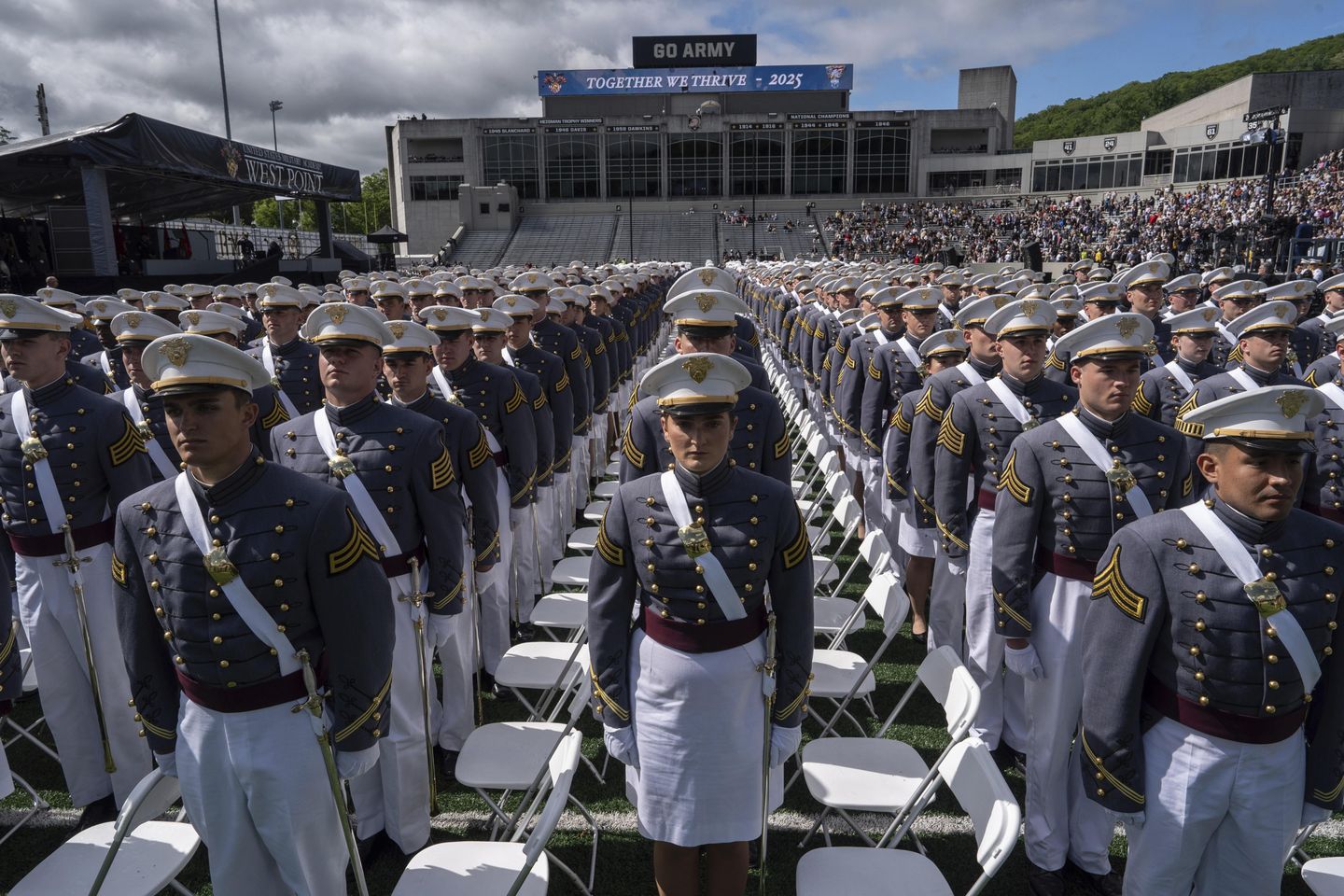
The Justice Department announced a settlement Tuesday that promises the Military Academy at West Point and the Air Force Academy will stop using race-based admissions preferences and instead pick future students “exclusively on merit.”
Government officials said the settlement is part of President Trump’s effort to weed out diversity, equity and inclusion policies government-wide.
“Today’s agreement ensures that our future military leaders will carry on the greatness that is born of opportunity, effort and a level playing field,” said U.S. Attorney Jay Clayton for the Southern District of New York, which was handling the West Point case.
The settlement plugs a hole the Supreme Court pointedly left in its 2023 ruling striking down affirmative action policies in most college admissions. At that time, the justices said the military academies, because of their special needs for officer training and military readiness, may be able to justify race-based admissions policies.
Students for Fair Admissions, the winner in those earlier high court cases, had sued the military academies seeking to test the issue.
The Biden administration fought the lawsuits, battling to preserve race-based preferences. The Trump administration reversed course, leading to the new settlements.
Lawyers for both sides filed a notice of the settlement and a dismissal of the cases this week.
“We are proud to partner with the Department of Defense to permanently end race-based admissions at West Point and the Air Force Academy — admission to these prestigious military institutions should be based exclusively on merit,” said Attorney General Pamela Bondi.
The government also settled a similar lawsuit against the Naval Academy earlier this year.
Edward Blum, president of SFA, said the settlement dismisses the cases, but he preserves the right to file again if the academies revert.
“This is a historic day for the principle of equal treatment under the law at our nation’s military academies,” Mr. Blum said. “Together with the Naval Academy case earlier this year, this agreement ensures that America’s critically important military service academies will admit future officers based solely on merit, not skin color or ancestry.”
President Trump had ordered the change in academy policies earlier this year as part of a broader push to eliminate DEI policies throughout the federal government.
He directed that every element of the Armed Forces should operate free from any preference based on race or sex.”
In its 2023 ruling, the Supreme Court said in a 6-3 decision that race-based preferences in school admissions couldn’t survive heightened constitutional scrutiny under the Equal Protection Clause.
But Chief Justice John G. Roberts Jr., writing the majority opinion, noted that there could be an exception for the military academies, because of the special demands of the military and the potential need to train a diverse officer corps.
“No military academy is a party to these cases, but none of the courts below addressed the propriety of race-based admissions systems in that context. This opinion also does not address the issue, in light of the potentially distinct interests that military academies may present,” the chief justice wrote in a footnote in the majority ruling.
Advocates for affirmative action at the time had told the justices that diversity in the military was a goal and that any ruling outlawing the use of race could lead to problems with ranks and races in the armed forces.
Justice Sonia Sotomayor, dissenting from the ruling, said plenty of other institutions, such as religious training schools, could make a similar argument to the academies, yet had their policies invalidated.
And a federal judge in December upheld the Naval Academy’s preferences as constitutional because of “a compelling national security interest in a diverse officer corps.”
That case was on appeal when the Justice Department reached the settlement ending it.
The academies had generally downplayed the role of race in their admissions policies, but studies had found they made a big difference in picking entrants.
One study by Zach Goldberg found that a White applicant with a 5% chance of admission at the Naval Academy would have had a 50% chance if the same scores were for a Black applicant, and more than 70% of Black applicants wouldn’t have been admitted under a strict merit system.




![Man Arrested After Screaming at Senators During Big Beautiful Bill Debate [WATCH]](https://www.right2024.com/wp-content/uploads/2025/06/Man-Arrested-After-Screaming-at-Senators-During-Big-Beautiful-Bill-350x250.jpg)











